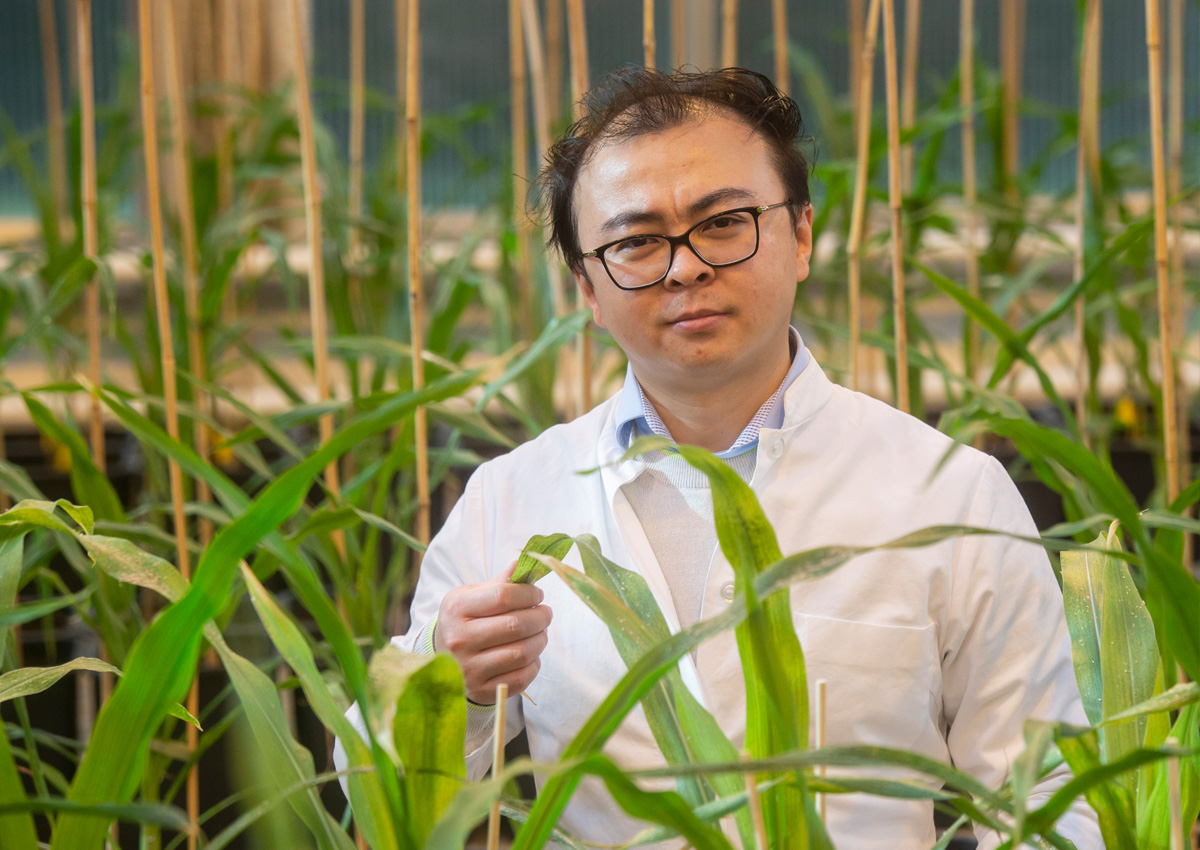
Bacteria Help Plants Grow Better, Lessen Need for Fertilizer
April 14, 2021| |
A study conducted by researchers from the University of Bonn in Germany and Southwest University in China sheds light on an unusual interdependence. They found that maize can attract special soil bacteria that, in turn, help the plants to grow better. The results could also lead to breeding new varieties that use less fertilizer and therefore have less impact on the environment.
The researchers studied maize varieties that differ significantly in their yields. They came across an enzyme, flavone synthase 2 in the high-yield inbred line 787. Led by Dr. Peng Yu of the Institute of Crop Science and Resource Conservation (INRES) at the University of Bonn, they found large amounts of the enzyme in the plant's roots. "It uses this enzyme to make certain molecules from the flavonoid group and releases them into the soil," he explained.
Flavonoids give flowers and fruits their color. In the soil, however, they perform a different function by ensuring that very specific bacteria accumulate around the roots. These microbes cause the formation of lateral roots. "This allows the maize plant to absorb more nitrogen from the environment," explains Prof. Dr. Frank Hochholdinger of the Institute of Crop Science and Resource Conservation (INRES). "This means the plant grows faster, especially when nitrogen supplies are scarce."
To show how well it works, the researchers used the LH93 maize variety, which normally produces rather puny plants. When they planted LH93 on the soil where the high-performance line 787 was previously planted, LH93 grew significantly better. The effect disappeared when the botanists sterilized the soil before repotting. This shows that the enriched bacteria are indeed responsible for turbo growth because they were killed during sterilization.
For more details, read the article on the University of Bonn website.
| |
You might also like:
- Scientists Discover Gene that Improves Yield and Fertilizer Use Efficiency of Rice
- 'Superstar' Rice Varieties Reduce Fertilizer Loss, Cut Down Pollution
- Pocket K No. 46: Nitrogen Use Efficient Biotech Crops
Biotech Updates is a weekly newsletter of ISAAA, a not-for-profit organization. It is distributed for free to over 22,000 subscribers worldwide to inform them about the key developments in biosciences, especially in biotechnology. Your support will help us in our mission to feed the world with knowledge. You can help by donating as little as $10.
-
See more articles:
-
News from Around the World
- Kenya's Agricultural Reforms Set to Bolster Bt Cotton Commercialization
- Genetically Engineered Probiotic Yeast Produces Beta-Carotene
- Experts Encourage Farmers in Pakistan to Plant Bt Cotton
- Bacteria Help Plants Grow Better, Lessen Need for Fertilizer
- Study Shows Effective Zinc Fertilization through Leaves in Wheat
- Biosensor Allows Real-Time Monitoring of Auxin in Plants
- Genome Sequencing of 445 Varieties Reveals Domestication History of Cultivated Lettuce
-
Research Highlights
- Stacked Insecticidal Genes Confer Resistance to Colorado Potato Beetle
-
Plant
- Korean Consumers Prefer Gene Edited Products Over GM, Study Finds
- Researchers Use CRISPR to Prevent Eucalyptus Trees from being Invasive
- MIT and UCSF Researchers Create On and Off Switch for CRISPR
-
Health
- NTU Singapore Sheds Light on Link of COVID-19 and Blood Clot Formation
-
Read the latest: - Biotech Updates (January 28, 2026)
- Gene Editing Supplement (January 28, 2026)
- Gene Drive Supplement (February 22, 2023)
-
Subscribe to BU: - Share
- Tweet

